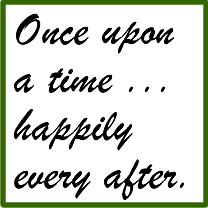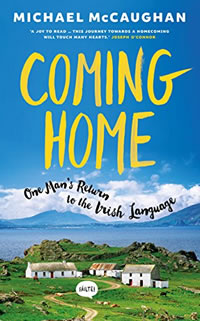
Here’s a recording in a mystery language.
Can you identify the language, and do you know where it’s spoken?

Here’s a recording in a mystery language.
Can you identify the language, and do you know where it’s spoken?
What’s the connecting between the words filibuster and freebooter?
The answer is, they both come from the same Dutch word vrijbuiter [ˈvrɛi̯bœy̯tər] (plunderer, robber), from vrij (free), buit (booty) and -er (agent suffix).
A freebooter as originally “an adventurer who pillages, plunders or wages ad-hoc war on other nations”, and apparently also means “one who rehosts online media without authorization”. It is a calque translation from Dutch, and was first recorded in English in the 1560s [source].
A filibuster originally meant “a mercenary soldier; specifically, a mercenary who travelled illegally in an organized group from the United States to a country in Central America or the Spanish West Indies in the mid-19th century seeking economic and political benefits through armed force”. Over time it also came to mean, “A tactic (such as giving long, often irrelevant speeches) employed to delay the proceedings of, or the making of a decision by, a legislative body, particularly the United States Senate”.
Filibuster was first recorded in English in the 1580s as flibutor. It was borrowed from the Spanish filibustero (pirate), from French flibustier (pirate), from the Dutch vrijbuiter.
I discovered this from Bill Bryson’s Made In America: An Informal History of American English, which I’m reading at the moment.
Filibustering freebooters! sounds like the kind of curse Captain Haddock uses in the Tintin stories. He does in fact say Filibuster(s)! and Fancy-dress freebooter!, but not Filibustering freebooters!, as far as I can discover.

The French exclamation C’est inouï ! means “It’s incredible!”.
The word inouï [inwi] means unprecedented, incredible, unheard-of, extraordinary, amazing. It is a combination of the negative prefix in- and ouï, which comes from ouïr (to hear, to listen), from the Old French oir (to hear, listen), from Latin audiō (I hear, listen, pay attention), from Proto-Indo-European *h₂ew-is-d-, a compound of *h₂ewis (clearly, manifestly) and *dʰh₁-ye/o- (to render) [source].
A friend told me last week that the TGV (le train à grande vitesse), France’s high-speed rail service, is being rebranded the inOui. In fact, inOui is the new name, introduced in 2017, for certain premium services on the TGV. All premium services will be known as inOUi by 2020. The name Ouigo was introduced for discount TGV services in 2013 [source].
The name inOui has been mocked and criticised by many.
Ouigo works in English as well (We go), but I’m sure English speakers will be joking about inOui, if they aren’t already.

Here’s a recording in a mystery language.
Can you identify the language, and do you know where it’s spoken?
Last night at the French conversation group one of the things we talked about was collective nouns or les noms collectifs.
There are plenty of these in English, like a flamboyance of flamingoes, a charm of goldfinches, a kindle of kittens, a cartload of monkeys, and so on.
We couldn’t think of many in French, so I thought I’d investigate. Here’s what I found:
– un amas de bois = a heap of wood
– un banc de poissons = a shoal of fish
– un banc de baleines = a school/pod of whales
– une bande de copains = a group of friends
– une bande d’idiots = a bunch of idiots
– une brassée de roses = an armful of roses
– un ensemble de dents = a set of teeth
– un essaim d’abeilles = a swarm of bees
– un essaim de beautés = a bevy of beauties
– une horde de lions = a pride of lions
– une horde de barbares = a horde of barbarians
– une meute de chiens = a pack of dogs
– une troupe/horde de babouins = a troop of baboons
– un troupeau de vaches = a herd of cows
– un troupeau de mouton = a flock of sheep
– une volée d’oiseaux = a flock of birds
I’m sure there are more. What about in other languages?
By the way, are there collective nouns for linguists and polyglots? Maybe babble or Babel.
Sources: Grammaire AIDENET, Reverso, Wiktionary
| français | English | Cymraeg |
|---|---|---|
| Les couennes de porc frite | pork scratchings | |
| la couenne | rind | crofen; crawen; crafen |
| la peau | hide (skin) | croen |
| le cuir | hide (leather) | lledr; croen |
| seul à seul; face à face | one-to-one | un i un |
| gazouiller; grisoller; roucouler | to warble | telori; trydar |
| fauvette | warbler | telor |
| pour l’amour de Dieu | for heaven’s sake | neno’r nefoedd; er mwyn y nefoedd |
| l’inhalateur (m) | inhaler | ymanadlwr; pwmp |
| inouï | unprecedented; incredible; tremendous | diesiampl; digyffelyb; anhygoel; anghredadwy |
| c’est inouï | that’s unheard of | mae hynny’n anhygoel |

Folk tales in English traditionally start with the phrase “Once upon a time”, “A long time ago” or “There was once a …”, or something similar. This might be followed by “in a land far, far away”, and possibly “there lived a …”.
They often end with the phrase “… and they lived happily every after”, or something similar.
At least that’s the impression I have. Is it accurate though?
Here are a selection of opening and closing sentences from English folk tales:
Once upon a time there was a woman, and she baked five pies.
…
Well, when that heard her, that gave an awful shriek and away that flew into the dark, and she never saw it any more.
From: Tom Tit Tot
Once upon a time there was a farmer and his wife who had one daughter, and she was courted by a gentleman.
…
So the gentleman turned back home again and married the farmer’s daughter, and if they didn’t live happy for ever after, that’s nothing to do with you or me.
From: The three sillies
There was once upon a time a good man who had two children: a girl by a first wife, and a boy by the second.
…
Then the bird rattled the millstone against the eaves of the house a third time; and the stepmother said: “It thunders again, perhaps the thunder has brought something for me,” and she ran out; but the moment she stepped outside the door, down fell the millstone on her head; and so she died.
From: The Rose-tree
There were two lasses, daughters of one mother, and as they came from the fair, they saw a right bonny young man stand at the house-door before them.
…
And he took her home, and they lived happy ever after.
From: The Golden Ball
There once lived a king and a queen as many a one has been.
…
And they lived happy all their days.
From: Nix Nought Nothing
There was an old soldier who had been long in the wars—so long, that he was quite out-at-elbows, and he did not know where to go to find a living.
…
“You are a bigger fool than I am,” said the wife; “for I did only one foolish thing, and you have done two.”
From: Jack Hannaford
Well, there was once a very rich gentleman, and he’d three daughters, and he thought he’d see how fond they were of him.
…
And so they were happy ever after.
From: Cap-o-rushes
There was once a very learned man in the north-country who knew all the languages under the sun, and who was acquainted with all the mysteries of creation.
…
But the master remembered on his journey that he had not locked his book, and therefore returned, and at the moment when the water was bubbling about the pupil’s chin, rushed into the room and spoke the words which cast Beelzebub back into his fiery home.
From: The master and his pupil
Once upon a time, and a very good time it was, though it was neither in my time nor in your time nor in any one else’s time, there was an old man and an old woman, and they had one son, and they lived in a great forest.
…
And off they went, and were not long before they reached their journey’s end, when out comes the young wife to meet him with a fine lump of a young SON, and they all lived happy ever afterwards.
From: Jack and his golden snuff-box
Once upon a time there was a boy whose name was Jack, and he lived with his mother on a common.
…
They lived in a large house, and Jack’s mother lived with them in great happiness until she died.
From: Lazy Jack
Once there was a man Gobborn Seer, and he had a son called Jack.
…
As they left Gobborn told him: Now that Jack was done with this work, he should soon build a castle for his witty wife far superior to the king’s, which he did, and they lived there happily ever after.
From: Gobborn Seer
There lived formerly in the County of Cumberland a nobleman who had three sons, two of whom were comely and clever youths, but the other a natural fool, named Jack, who was generally engaged with the sheep: he was dressed in a parti-coloured coat, and a steeple-crowned hat with a tassel, as became his condition.
…
His majesty did not much relish the operation, but he assented to the marvel of it, and the princess and Jack were united the same day, and lived for many years in happiness and prosperity.
From: Princess of Canterbury
Not every tale starts with “Once upon a time”, and not everybody lives happily ever after, it seems. Also, Jack is a name that often seems to crop up in English folk tales.
What about in other languages?
How to folk tales begin and end in languages other than English?

Here’s a recording in a mystery language.
Can you identify the language, and do you know where it’s spoken?
I’ve been studying Russian, Swedish and Romanian with Duolingo for the past four months using the app on my phone. I knew you could also study online, but have only just discovered that the online version includes notes on grammar. These are very helpful, and I’ll be going through them all.
The notes don’t appear to be included in the app, as far as I can see, unless I’ve missed something. Sometimes it can be tricky to work out grammatical patterns from the examples. It will be easier now with the notes.
I’m doing an experiment to see how much of these languages I can learn just from Duolingo. I have learnt some Russian and Swedish from other courses, but so far Duolingo is the only course I’ve used for Romanian. If I continue studying every day, at my current rate of progress I should complete the courses in another year or so.
Have you learned any languages just from Duolingo?

While I was in Ireland last month I went to an interesting talk by Michael McCaughan at which he launched his book, Coming Home: One man’s return to the Irish Language.
I have just finished reading the book, and found it very interesting. Although he had to study Irish in school, like everybody else in Ireland, he wasn’t able to speak the language after finishing school. While working as a journalist in South America, he was often asked about the Irish language when people found out he was from Ireland, and he became ashamed that he couldn’t speak it, apart from odd phrases. He became determind to master Irish, and wrote the book about his Irish learning adventures, and also about the history and current state of the language.
He discusses the challenges of learning a minority language, including finding people to talk to, and pursuading native speakers to speak Irish to you, even though it is often easier them to switch to English, unless you’re very fluent. He talks about the growth of Irish in Northern Ireland in both Catholic and Protestant communities, where there is a real hunger for the language. People there don’t let minor things like lack of funds or official permission stop them from setting up schools, radio stations and other things.
If you have any interest in the Irish language and/or Ireland, this book is worth reading.
A friend of mine has a similar story: she grew up in Wales but had no interest in learning Welsh at school. After learning school, she went travelling in Eastern Europe, and was often asked about Wales and the Welsh language when people found out where she was from. She became determined to learn Welsh, and in less then a year, during which time she studied Welsh everyday, and shared a flat with native Welsh speakers, she was more or less fluent. She won the Welsh Learner of the Year competition in 2008, and went on to do a degree in Celtic Studies at Aberystwyth University.
In order to appreciate your own language and culture, is it necessary to spend time in other countries?